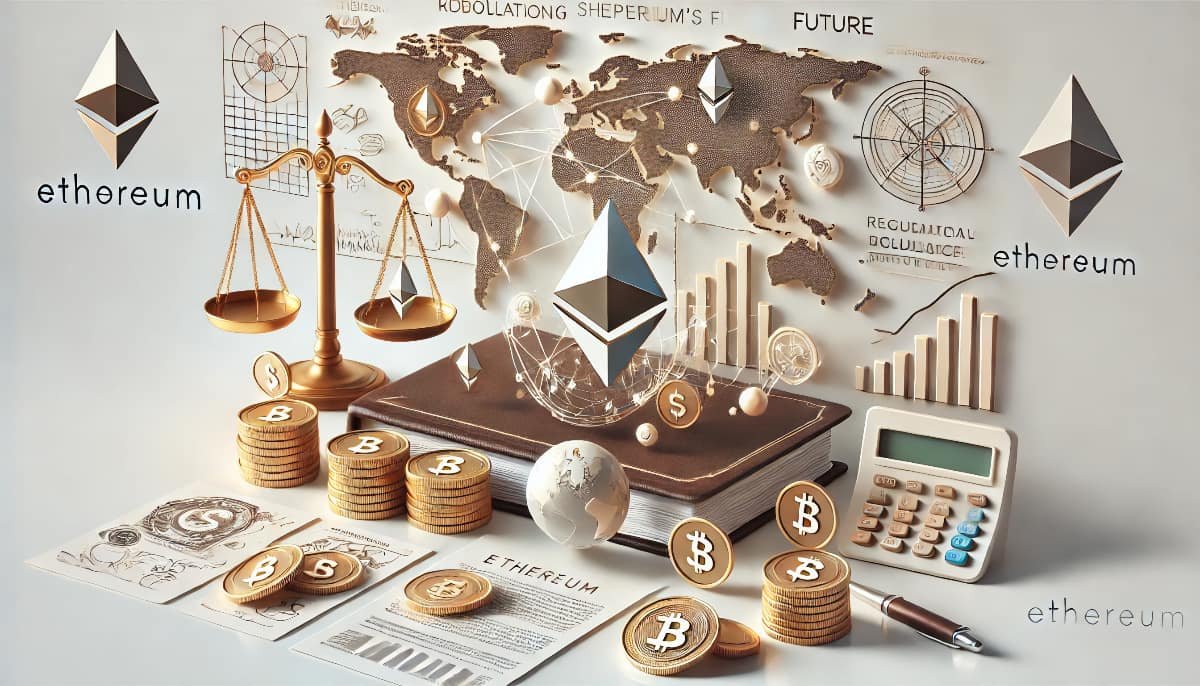The Impact of Global Regulations on Ethereum’s Evolution
Ethereum, the second-largest cryptocurrency by market capitalization, has been a focal point of innovation and development in the blockchain space. As the platform continues to evolve, global regulations are playing an increasingly significant role in shaping its future. This article delves into how these regulations are influencing Ethereum’s trajectory, examining various aspects such as technological advancements, market dynamics, and legal frameworks.
Understanding Ethereum: A Brief Overview
Before diving into the regulatory landscape, it is essential to understand what Ethereum is and why it is so pivotal in the blockchain ecosystem.
What is Ethereum?
Ethereum is a decentralized platform that enables developers to build and deploy smart contracts and decentralized applications (dApps). Unlike Bitcoin, which primarily serves as a digital currency, Ethereum offers a more versatile platform for various applications, ranging from finance to supply chain management.
Key Features of Ethereum
- Smart Contracts: Self-executing contracts with the terms of the agreement directly written into code.
- dApps: Decentralized applications that run on the Ethereum network.
- Ether (ETH): The native cryptocurrency used to pay for transactions and computational services on the network.
- Ethereum Virtual Machine (EVM): A runtime environment for smart contracts in Ethereum.
Global Regulatory Landscape
The regulatory environment for cryptocurrencies and blockchain technology varies significantly across different jurisdictions. This section explores how various countries are approaching the regulation of Ethereum and its associated technologies.
United States
The United States has a complex regulatory framework for cryptocurrencies, involving multiple agencies such as the Securities and Exchange Commission (SEC), the Commodity Futures Trading Commission (CFTC), and the Financial Crimes Enforcement Network (FinCEN).
- SEC: Focuses on whether cryptocurrencies and tokens are securities.
- CFTC: Regulates derivatives and commodities, including certain types of cryptocurrency transactions.
- FinCEN: Enforces anti-money laundering (AML) and know-your-customer (KYC) regulations.
European Union
The European Union (EU) has been proactive in creating a regulatory framework for cryptocurrencies. The Markets in Crypto-Assets (MiCA) regulation aims to provide legal clarity and consumer protection while fostering innovation.
- MiCA: A comprehensive regulatory framework for crypto-assets in the EU.
- GDPR: General Data Protection Regulation, which impacts how data is handled on blockchain networks.
Asia
Asian countries have diverse approaches to cryptocurrency regulation. While some nations like Japan have embraced cryptocurrencies, others like China have imposed stringent restrictions.
- Japan: Recognizes cryptocurrencies as legal property and has a robust regulatory framework.
- China: Has banned cryptocurrency trading and initial coin offerings (ICOs).
- Singapore: Aims to be a global hub for blockchain technology with a balanced regulatory approach.
Technological Advancements and Regulatory Compliance
Technological advancements in Ethereum are often influenced by the need to comply with global regulations. This section explores how these advancements are shaping the platform’s future.
Scalability Solutions
Scalability has been a significant challenge for Ethereum. The network’s ability to handle a large number of transactions per second is crucial for its widespread adoption. Regulatory requirements for transaction speed and efficiency are driving innovations in this area.
- Ethereum 2.0: A major upgrade aimed at improving scalability, security, and sustainability.
- Layer 2 Solutions: Technologies like Rollups and Plasma that aim to increase transaction throughput.
Security Enhancements
Security is another critical aspect influenced by regulatory standards. Ensuring the safety of user funds and data is paramount for compliance with global regulations.
- Formal Verification: A method to mathematically prove the correctness of smart contracts.
- Audits: Regular security audits to identify and mitigate vulnerabilities.
Privacy Features
Privacy is a double-edged sword in the world of blockchain. While users demand privacy, regulators require transparency to prevent illicit activities. Ethereum is exploring various privacy features to strike a balance.
- zk-SNARKs: Zero-Knowledge Succinct Non-Interactive Arguments of Knowledge, a cryptographic method to enhance privacy.
- Mixers: Tools that obfuscate transaction details to enhance privacy.
Market Dynamics and Regulatory Influence
The market dynamics of Ethereum are significantly influenced by global regulations. This section examines how regulatory actions impact market behaviour, investor sentiment, and overall adoption.
Investor Confidence
Regulatory clarity often boosts investor confidence. When investors understand the legal landscape, they are more likely to invest in Ethereum and related projects.
- Institutional Investment: Increased regulatory clarity has led to a surge in institutional investments in Ethereum.
- Retail Investors: Clear regulations provide a safer environment for retail investors.
Market Volatility
Regulatory announcements can cause significant market volatility. Positive news often leads to price surges, while negative news can result in sharp declines.
- Price Surges: Positive regulatory developments can lead to increased demand and higher prices.
- Price Declines: Negative regulatory news can cause panic selling and price drops.
Adoption Rates
Regulatory frameworks can either hinder or accelerate the adoption of Ethereum. Countries with favourable regulations often see higher adoption rates.
- Favourable Regulations: Countries with supportive regulations see higher adoption rates.
- Restrictive Regulations: Stringent regulations can stifle adoption and innovation.
Legal Frameworks and Their Implications
Legal frameworks around the world are evolving to accommodate the unique challenges posed by blockchain technology and cryptocurrencies. This section explores the implications of these legal frameworks on Ethereum.
Intellectual Property
Intellectual property (IP) laws are crucial for protecting innovations in the Ethereum ecosystem. However, the decentralized nature of blockchain poses unique challenges for IP protection.
- Patents: Protecting blockchain innovations through patents.
- Copyrights: Ensuring that original works on the Ethereum platform are protected.
Taxation
Taxation is a complex issue for cryptocurrencies. Different countries have different approaches to taxing cryptocurrency transactions, which can impact Ethereum’s adoption and usage.
- Capital Gains Tax: Tax on the profit made from selling cryptocurrencies.
- Income Tax: Tax on earnings received in the form of cryptocurrencies.
Consumer Protection
Consumer protection laws aim to safeguard users from fraud and other malicious activities. These laws are essential for building trust in the Ethereum ecosystem.
- Anti-Fraud Measures: Regulations to prevent fraudulent activities on the Ethereum network.
- Dispute Resolution: Mechanisms for resolving disputes between users and service providers.
Future Prospects and Challenges
The future of Ethereum is intertwined with the evolving regulatory landscape. This section explores the prospects and challenges that lie ahead for Ethereum in the context of global regulations.
Opportunities
Despite the challenges, there are numerous opportunities for Ethereum to thrive in a regulated environment.
- Institutional Adoption: Regulatory clarity can pave the way for increased institutional adoption.
- Technological Innovation: Compliance with regulations can drive technological advancements.
- Global Reach: A unified regulatory framework can facilitate Ethereum’s global reach.
Challenges
However, there are also significant challenges that Ethereum must overcome to succeed in a regulated world.
- Regulatory Compliance: Ensuring compliance with diverse regulations across different jurisdictions.
- Scalability: Addressing scalability issues to meet regulatory requirements for transaction speed and efficiency.
- Security: Enhancing security measures to comply with regulatory standards.
Conclusion
In conclusion, global regulations are playing a pivotal role in shaping the future of Ethereum. While these regulations present both opportunities and challenges, they are essential for the platform’s long-term success. By navigating the complex regulatory landscape, Ethereum can continue to innovate and grow, ultimately achieving its vision of a decentralized world.

Q&A Section
| Question | Answer |
|---|---|
| What is Ethereum? | Ethereum is a decentralized platform that enables developers to build and deploy smart contracts and decentralized applications (dApps). |
| How do global regulations impact Ethereum? | Global regulations influence various aspects of Ethereum, including technological advancements, market dynamics, and legal frameworks. |
| What are some key features of Ethereum? | Key features include smart contracts, dApps, Ether (ETH), and the Ethereum Virtual Machine (EVM). |
| What are the main regulatory bodies in the United States? | The main regulatory bodies include the SEC, CFTC, and FinCEN. |
| What are some challenges Ethereum faces in a regulated environment? | Challenges include ensuring regulatory compliance, addressing scalability issues, and enhancing security measures. |














 How to trade CFD? (00:49)
How to trade CFD? (00:49) How to trade binary options*? (01:22)
How to trade binary options*? (01:22) Forex. How to start? (01:01)
Forex. How to start? (01:01)